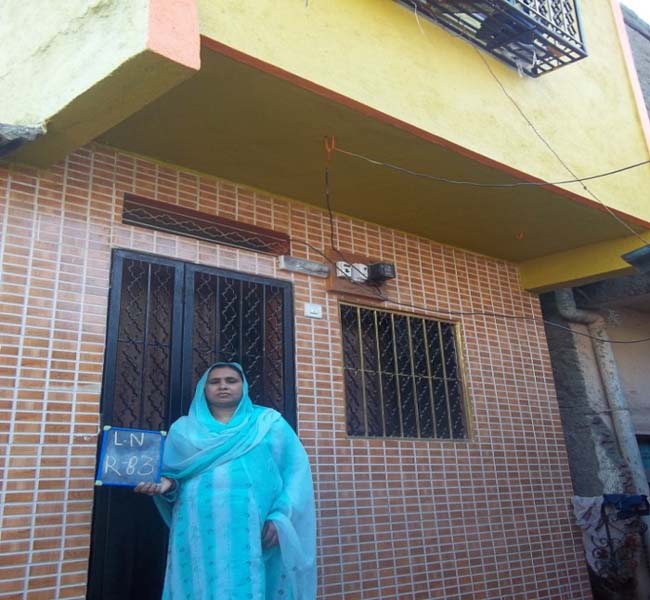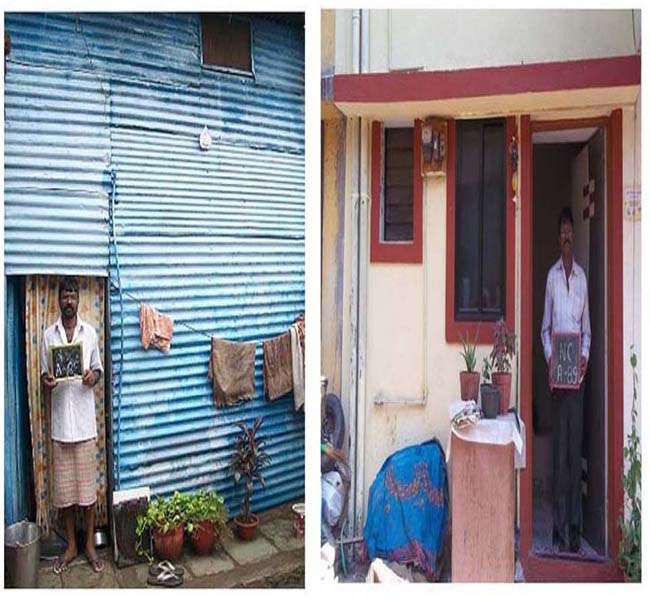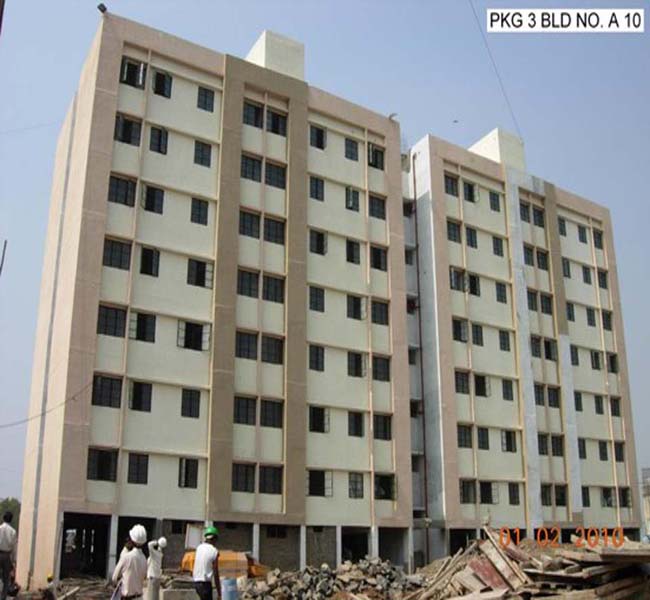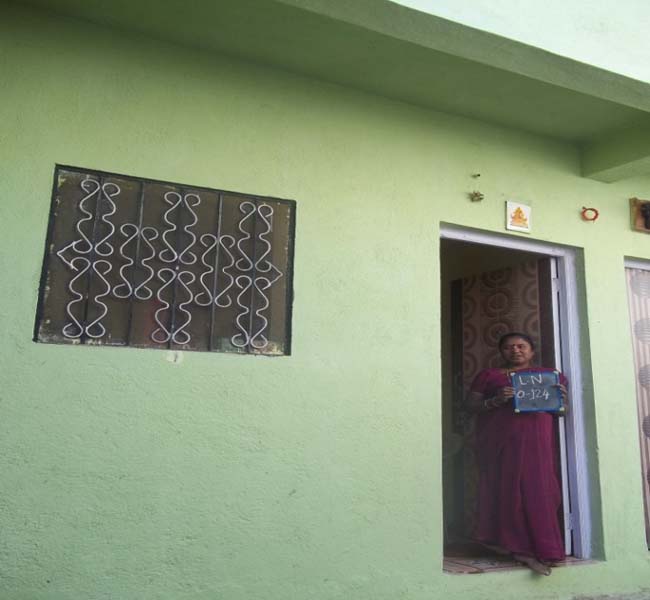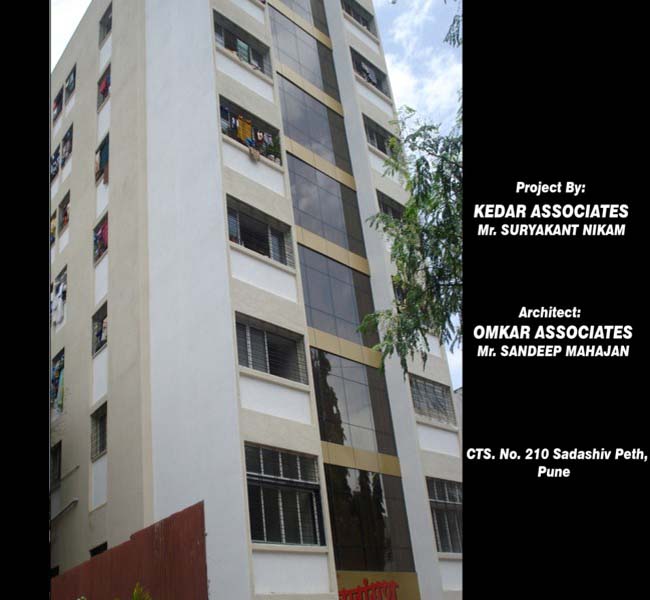Jejuri Municipal Council, with population of about 15 thousand is Purandhar sub district's the least populous municipal council located in Purandhar sub district of Pune district in the state Maharashtra in India. Total geographical area of Jejuri municipal council is 7 km2 and it is the smallest city by area in the sub district. Jejuri Temple is located in the Jejuri town, which lies to the southeast of the Pune city of Maharashtra.
Jejuri is a Municipal Council city in district of Pune, Maharashtra. The Jejuri city is divided into 8 wards for which elections are held every 5 years. The Jejuri town has population of 14,515 among them 7347 (51%) are male and 7168 (49%) are female. 85% of the whole population are from general caste, 13% are from schedule caste and 2% are schedule tribes. Child (aged under 6 years) population of Jejuri municipal council is 11%, among them 52% are boys and 48% are girls. There are 3286 households in the city and an average 4 persons live in every family. As per report released by Census India 2011.
Mashal has surveyed in Jejuri Municipal council that time found that, in Jejuri there is no declared slum area. But people from low income group live in slum like area in Jejuribut Jejuri Municipal Council has 8 Slum Pockets. AlsoMashal has prepared the Housing for All Plan of Action for Jujuri Municipal Council under PMAY scheme.
The in-situ slum rehabilitation project undertaken by MASHAL under PMC was based on the active participation of the communities and the coordination between the implementing agency (MASHAL), the Pune Municipal Corporation (PMC), the state government and the central government. The Pune Municipal Corporation is the first ULB to have piloted the in-situ upgradation model and has emerged as a forerunner in developing a project methodology that gives credence to the voice of the poor and includes them in the process of slum rehabilitation.
The choice proposed was supposed to be the derivative evolved as an optional model as per the cafeteria approach. It needed to showcase a model that had a bottom-up approach. The model takes cognizance of the investments that have already been made by slum dwellers in building their homes and therefore it focuses predominantly on the more vulnerable sections within the slum community by targeting the program at occupants of kutcha huts.The project aimed at addressing the needs of the more vulnerable sections of the society and focuses on providing quality homes to the people living in ‘kutcha’ houses on the same plot. The holistic aim of the project was to bring about an improvement in the living environment of the urban poor. Four NGOs viz. SPARC, SEWA, VRP and MASHAL worked for this project.
MASHAL has undertaken the leading role out of four NGOs in the construction of 2400 houses in the Yerawada and Sangamwadi administrative wards of Pune.
MASHAL has provided survey services to numerous builders who wanted to undertake slum rehabilitation projects in the slums of Pune and PCMC. MASHAL has not participated in the beneficiary consent tasks but has chosen to remain the technical support partner.These surveys have not only equipped MASHAL with rich data sets but have also gave the receiving organization’s projects financial viability. MASHAL has also provided architectural services fortheRamtekdi slum rehabilitation project of the Parathama Group, covering 2300 households, and for the JantaVasahat slum rehabilitation project of the Parmar group, covering 7000 households.
The habitants of Khadda Basti Slum have come from small towns and rural areas, and have settled themselves here in Pune looking for better opportunities. Although most of the dwellers of this slum have migrated from other parts of Maharashtra, they are all very diverse. Some of them have come from all four corners of India, and their religions are also different. The Basti comprised of 75 households. The settlement has been bulldozed twice without notice. More than half of the population that lived in the Khadda Basti Slum is a member of KKPKP (KagadKach Patra Kashtakari Panchayat) and when the slum was demolished in 2009, KKPKP took action and appealed to Pune Municipal Corporation to make sure the slum dwellers were given an alternative house. MASHAL played a critical role in providing data and liaison-based support to KKPKP for the relocation of pavement dwellers, primarily working with solid waste disposal and treatment, as well as the relocation of pavement dwellers to PMC-owned rehabilitation buildings constructed under the BSUP project. The project constituted the construction of 108 units.
Funded by Oxfam (USA), this project was effective in supporting the destitute women who were affected by the earthquake and propagated the construction of low-cost self-help housing using local materials.
The housing design using material and based on people’s participation, evolved by MASHAL earlier in Budhada was further modified and implemented in the villages of Lohara and Pandhari in Osmanabad, when its technical support was asked for by the local NGO ChatraYuva Bharati and Maharashtra Aarogya Mandal in the reconstruction of houses for the earthquake affected people.
This scheme is an ideal example of people’s capacity and participation to solve their own housing problems, without expecting cross subsidy or dependence on formal institutional finance.
MASHAL helped the slum dwellers who were evicted from Williumnagar and given an alternate area of about 15’*10’ for reconstruction, in evolving suitable layout plans and appropriate construction methods.
This project was funded by TDH-Germany aimed at encouraging and empowering the slum dwellers to participate in the housing reconstruction project. A committee was formed by the slum dwellers that formulated and organized proper sanitation programs, which benefitted the dwellers immensely.

